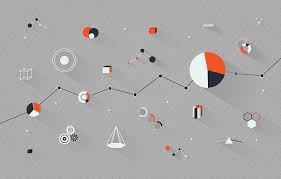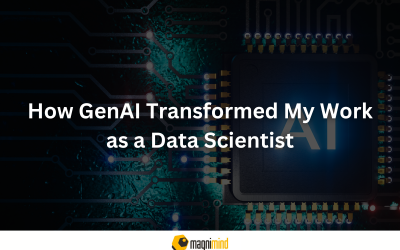Data mining refers to the process where a large amount of data is analyzed to extract new and hidden information from it, which can then be used to boost business efficiency. In other words, you can say data mining searches for valid, hidden, and potentially useful patterns in large data sets. Since data mining needs multi-disciplinary skills, you’ll have to use statistics, machine learning, AI (artificial intelligence), and database technology. Since data mining helps you discover previously unknown/unsuspected relationships amongst the data, you can use the insights gathered from it for scientific discovery, sales and marketing, fraud detection, etc.
An overview of data mining applications

Data Mining Applications
If you’ve made up your mind to learn data mining, here are some applications of it, knowing which would help you choose your career path:
- Market Basket Analysis:
- Fraud Detection: Unlike time-consuming and complex traditional methods of fraud detection, data mining can help find meaningful patterns in data. This information can then be used to collect sample records, classify them as fraudulent or non-fraudulent, and build a model using this data where the algorithm is designed to spot whether the record is fraudulent or not.
- Future Healthcare: Using data mining approaches such as machine learning, multi-dimensional databases, statistics, data visualization, and soft computing, the number of patients in each category can be predicted. This can help develop processes that ensure each patient gets appropriate care at the right time and the right place. Apart from helping to improve healthcare and reduce costs, data mining can also assist healthcare insurers in identifying fraud and abuse.
- Education: EDM or Educational Data Mining helps predict the future learning behavior of students, and even lets you study the effects of educational support as well as how advanced scientific knowledge can help in learning. Thus, data mining can help educational and training institutes focus on what they should teach and the ways to effectively teach apart from predicting the results of the students.
Apart from the above, many other industries like banking, transportation, manufacturing, etc. can also gain from data mining and data science.
How to learn data mining?

Learn Data Mining
If you have your eyes set on the field of data science and want to master data mining, you can either get enrolled in a full-time course or find some bootcamps to join where you’ll learn all that you need to, albeit much faster than a traditional course. In case you plan to use bootcamps, remember that you’ll need a good statistical and machine learning foundation to understand what’s being taught and apply this knowledge to get useful information by cutting the noise of Big Data.


